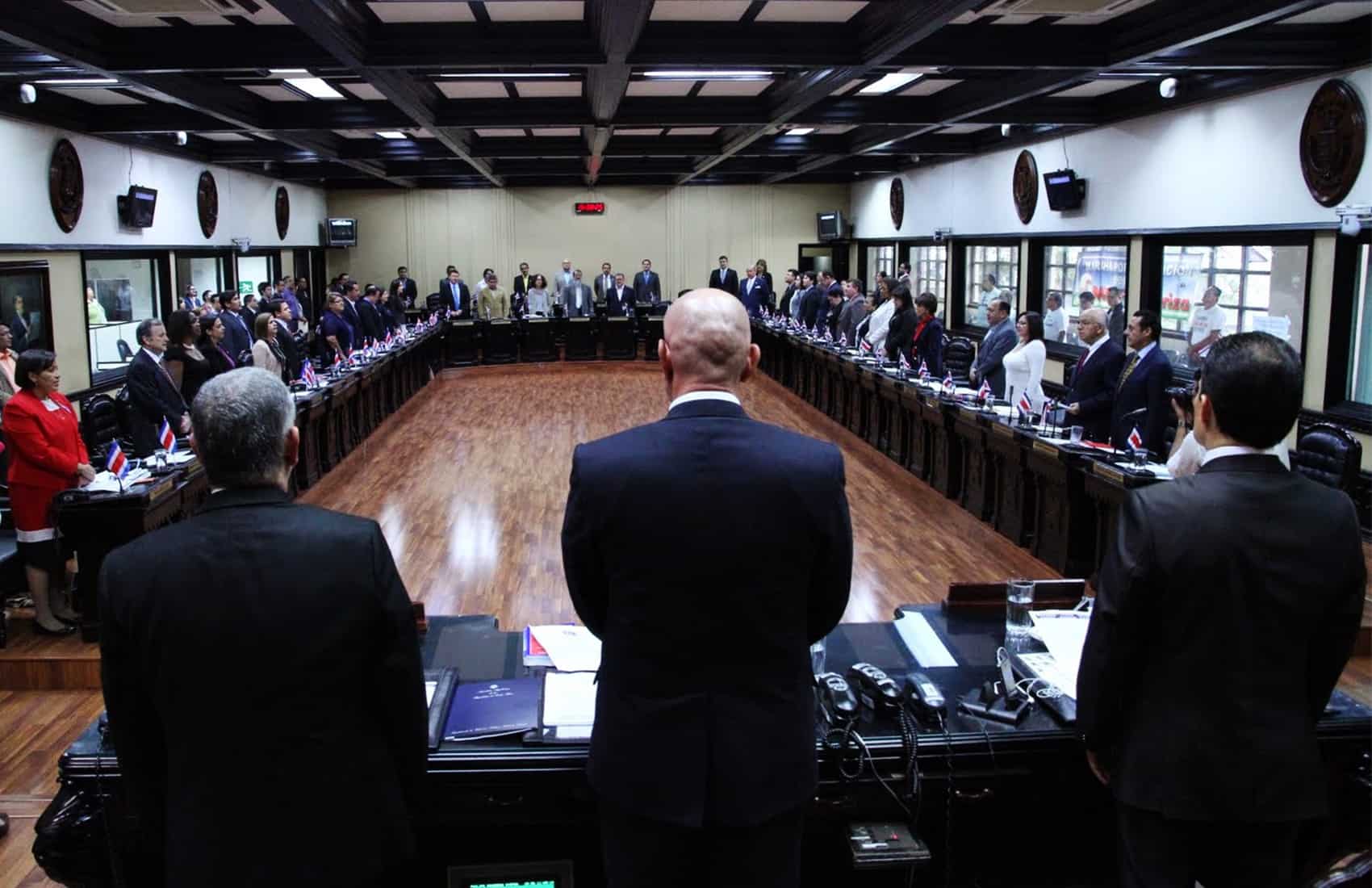You won’t find Costa Rica’s lawmakers marching in the streets or grilling steaks at the beach on this May 1.
After the general election held on the first Sunday of February every four years, May 1 is the second most important day in the Costa Rican government’s calendar. It’s the day the Legislative Assembly — made up of 57 lawmakers representing the country’s seven provinces — scraps its leadership and committees, and essentially starts over again.
For weeks legislators have been negotiating, courting, forming and breaking alliances among themselves as the different political parties vie for power in the Assembly. Late on Thursday evening, La Nación reported that six opposition parties in the legislature had agreed to form a voting bloc in order to capture the Assembly leadership.
Here’s a primer for Friday.
What happens on May 1?
During the morning legislative session, lawmakers vote to elect the Legislative Assembly’s directorate, which consists of three members: a president and two secretaries. They also elect a vice president and two pro secretaries as alternates.
All members of the Legislative Directorate are elected for one year but they can be reelected.
At the evening session, Costa Rica’s president addresses the Assembly and the country in his annual “State of the Nation” speech. Besides lawmakers, top officials of the executive and judicial branches, Catholic Church leaders and diplomatic representatives also attend.
Following the president’s speech, the legislative president gives a speech responding to the president’s report.
What is the Legislative Directorate’s job?
The primary job of the Legislative Directorate is to manage debates and voting on laws, decrees, appointments and all other legislative matters during sessions of the full Legislative Assembly.
During the ordinary legislative sessions — from May 1 to July 31 and September 1 to November 30 — the Legislative Assembly President is responsible for setting the order in which bills are discussed and voted on.
During the extraordinary legislative sessions — from December 1 to April 30 and from August 1 to 31 — the list of bills to be discussed and voted on is set by the country’s president who, with the help of his cabinet members, prioritizes them on the Assembly’s agenda.
The Directorate’s president is also in charge of assigning all 57 lawmakers to legislative committees, which discuss, modify, amend and approve draft bills before they’re passed on (or not) to the full Assembly.
The Legislative President is also responsible for receiving bills and proposals submitted by lawmakers, social groups and citizens, and selecting the legislative committee responsible for a bill’s evaluation and approval.
The Assembly’s directorate also has administrative functions, which include distributing financial and human resources to each party represented in the Assembly, proportionate to the number of lawmakers from each party.
The directorate also appoints and promotes officials within the legislature, drafts and enforces internal regulations and sets the job responsibilities of all Assembly employees.
Legislative Committees
Following election of the Assembly’s Directorate on May 1, every lawmaker is appointed by the Legislative President to at least one of the Assembly’s six Permanent Ordinary Committees and six Permanent Special Committees.
They’re also appointed to one of the three committees with Full Legislative Powers, also known as “mini assemblies.” These committees have the authority to pass or amend laws without requiring a vote by the Full Assembly. They consist of 19 lawmakers each and have their own directorate formed by a president, vice president, secretary and pro secretary.
Members of all the legislative committees are appointed for one year and can be reelected every May.
Permanent Ordinary Committees:
Financial Affairs: handles budgets and tax-related issues.
Economic Affairs: legislation related to the economy, commerce and industry.
Social Affairs: labor, health, education and social protection.
Legal Affairs: civil rights, criminal law, commercial law, elections law and internal assembly regulations.
Government and Administration: legislation related to the central government, public security and foreign affairs.
Agriculture and Natural Resources: agriculture, energy and natural resources.
Permanent Special Committees:
Drafting: responsible for reviewing and proofing the wording of all bills passed in a first round of voting by the full Assembly.
Public Income and Spending Control: analyzes the government’s national budget bill, taking into consideration the Comptroller’s General Office’s budget analysis.
Constitutional Consultations: drafts and submits all consultations before the Constitutional Chamber of the Supreme Court, or Sala IV, to determine whether a bill could violate the Constitution.
International Relations: coordinates relations between the Legislative Assembly and Legislative branches on matters related to foreign countries and with foreign parliamentary groups.
Honors: evaluates proposals to grant “Benemérito de la Patria” status, the highest honor a citizen or organization can achieve in Costa Rica.
Books and Documents: responsible for selecting the books and other documents deemed necessary for the Assembly’s daily work.
Why May 1?
Costa Rica’s first Legislative Assembly was elected in January 1825, but the start date of the legislative year changed several times in subsequent years. According to Assembly records, lawmakers agreed on May 1 in 1890, citing the date’s local and international significance.
On May 1, 1857 the filibuster army commanded by William Walker surrendered to the Central American armed forces, ending the 1856 National Campaign against the invaders. The date, therefore, is considered a landmark that reaffirms Costa Rica’s independence, which was signed in 1821.
The date was also chosen to coincide with International Workers’ Day, also known as Labor Day.






